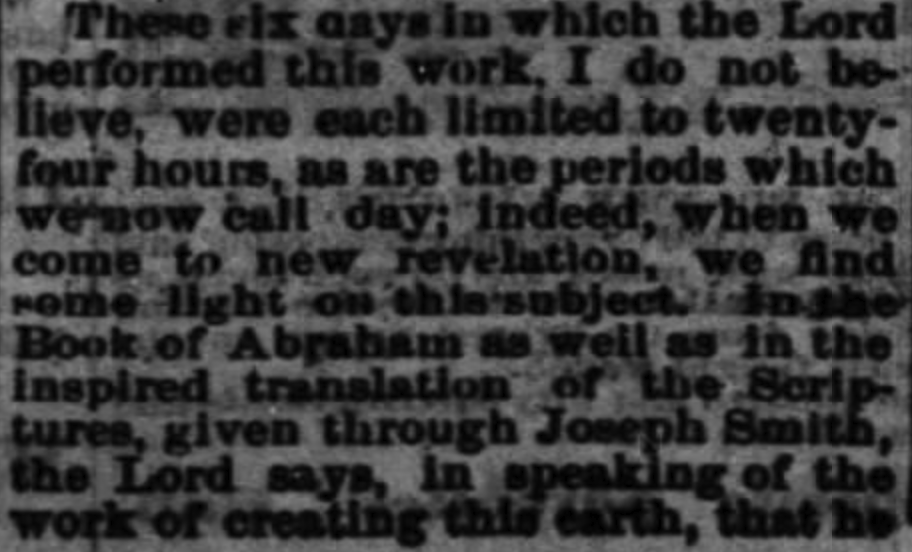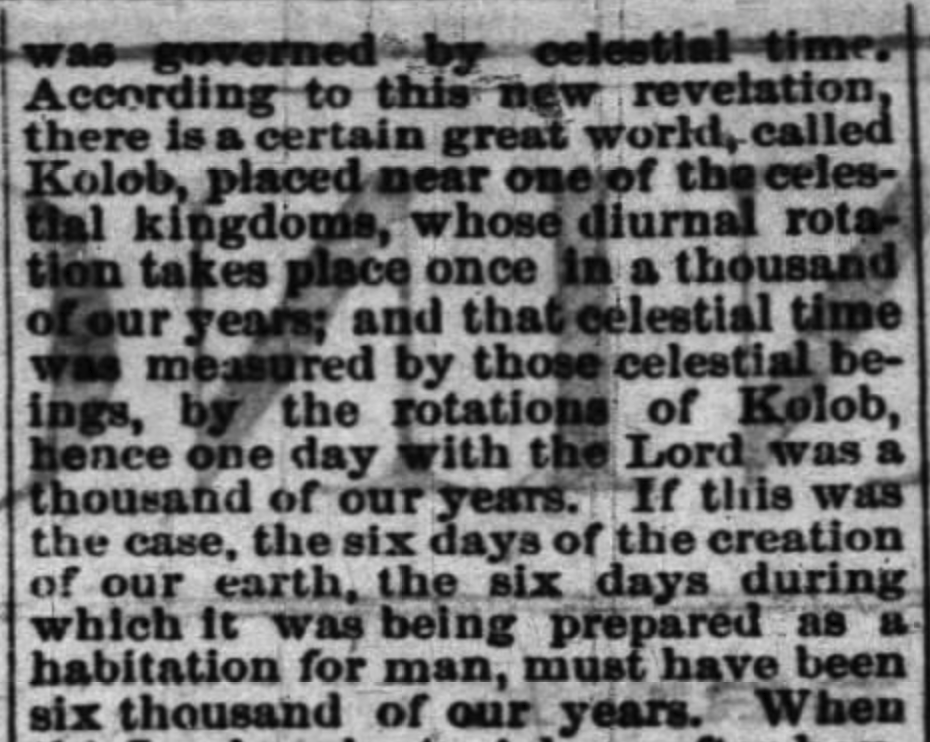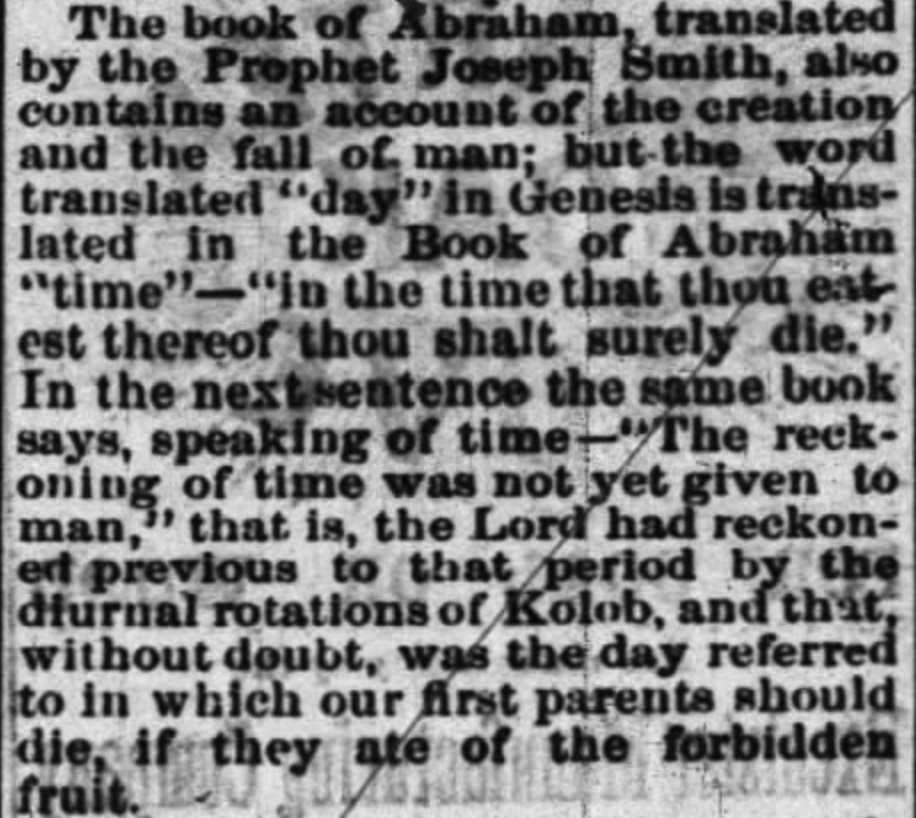Orson Pratt cites BOA on issue of "time" vs. "day" in Creation.
- Type
- Speech / Court Transcript
- Hearsay
- Scribed VerbatimDirectReprint
- Reference
Orson Pratt, Discourse, November 22, 1873, reported by David W. Evans, in Deseret News (December 27, 1873): [2]
- Scribe/Publisher
- David W. Evans, Deseret News
- Audience
- Latter-day Saints, Reading Public
- Transcription
These six days in which the Lord performed this work, I do not believe, were each limited to twenty-four hours, as are the periods which we now call day; indeed, when we come to new revelation, we find some light on this subject. in the Book of Abraham as well as in the inspired translation of the Scriptures, given through Joseph Smith, the Lord says, in speaking of the work of creating this earth, that he was governed by celestial time. According to this new revelation, there is a certain great world, called Kolob, placed near one of the celestial kingdoms, whose diurnal rotation takes place once in a thousand of our years; and that celestial time was measured by those celestial beings, by the rotations of Kolob, hence one day with the Lord was a thousand of our years. . . .
The book of Abraham, translated by the Prophet Joseph Smith, also contains an account of the creation and the fall of man; but the word translated "day" in Genesis is translated in the book of Abraham "time"—"in the time that thou eatest thereof thou shalt surely die." In the next sentence the same book says, speaking of time—"The reckoning of time was not yet given to man," that is, the Lord had reckoned previous to that period by the diurnal rotations of Kolob, and that, without doubt, was the day referred to in which our first parents should die, if they ate of the forbidden fruit.
- Source Link
- https://www.newspapers.com/clip/83108572/
- Citations in Mormonr Qnas
The B. H. Roberts Foundation is not owned by, operated by, or affiliated with the Church of Jesus Christ of Latter-day Saints.



